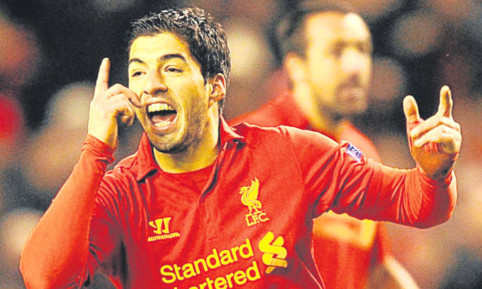
The re-emergence of Liverpool as potential title-winners and Champions League contenders for years to come poses the most significant threat yet to Manchester United’s global commercial dominance.
That’s why the Glazer family acted so decisively when they sacked David Moyes.
Of course, there were many valid football reasons too. But the real fear at Old Trafford is a possible second season with them outside Europe’s elite competition while Liverpool are banking the hugely increased TV revenues coming in 2015.
The financial whizzes who have helped United become the best-supported club in the world are worried that Liverpool will hoover up a sizeable percentage of their fans.
We’re talking here about floating voters mainly in the Far East who follow success and have no long-standing family allegiances.
They just want to be associated with a club that wins trophies and have players who excite the casual, often female, fan.
Liverpool have more potential to damage United commercially than Manchester City, Arsenal or Chelsea because they have history.
When a club with history suddenly becomes successful again especially if they do so with a young, attractive, media-friendly side it’s the perfect recipe for commercial boom time.
United themselves provide the blueprint.
They, too, had history, but it took the success of the mid-nineties spearheaded by the dashing cavaliers of the Class of 92 for them to really take off.
Since then, a whole new world has opened up for them and the club has ruthlessly exploited it.
In recent weeks they have announced sponsorship deals from Thai confectioners, a Maltese bank and a Taiwanese tyre manufacturer.
But that sort of clout is based on the all-conquering United of the Ferguson years, who were ever-presents in the global showcase of the Champions League.
United may be able to live without the £30m one year in the wilderness would cost. But the following season, the prize for getting through the group stages will be more than £40m. That’s serious money.
Manchester City and Chelsea will still have mega-rich owners and Arsenal will still have fortunes stashed in the bank. But Liverpool are the problem. The Champions League will give them one new stream of income. The 9,000-seat extension at Anfield will give them another.
On the field, they are not going away. Off the field, that could mean disaster for United.

Enjoy the convenience of having The Sunday Post delivered as a digital ePaper straight to your smartphone, tablet or computer.
Subscribe for only £5.49 a month and enjoy all the benefits of the printed paper as a digital replica.
Subscribe